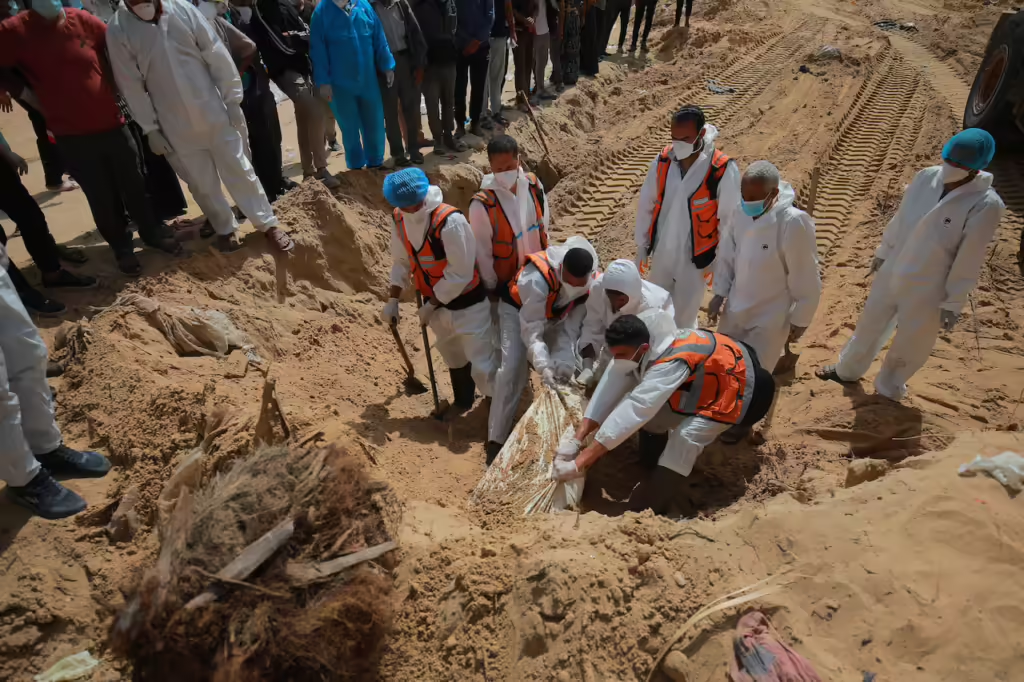I Wonder If There’s Anything Going On Outside of Columbia University Student Protests?

A mass grave with more than 300 bodies has been uncovered at a hospital in the southern Gaza city of Khan Younis, Gaza Civil Defense workers said, following the withdrawal of Israeli forces from the area earlier this month.
Col. Yamen Abu Suleiman, Director of Civil Defense in Khan Younis told CNN that 35 bodies had been discovered at the Nasser Medical Complex on Tuesday, bringing the total to 310. Some 73 bodies had been discovered on Monday, Suleiman said.
Suleiman alleged that some of the bodies had been found with hands and feet tied, “and there were signs of field executions. We do not know if they were buried alive or executed. Most of the bodies are decomposed.”
CNN is unable to verify Suleiman’s claims and cannot confirm the causes of death among the bodies being unearthed.
Previously, a Khan Younis Civil Defense spokesman and head of the search mission, Raed Saqr, told CNN that they are searching for the bodies of another 400 missing people after the Israeli military left on April 7.
A CNN stringer who visited the scene Sunday said people had buried the bodies of family members who had been killed in the grounds of the hospital in January as a temporary measure. When they returned after the Israeli withdrawal they found the bodies had been exhumed – apparently because the IDF was using DNA testing to determine whether any of the hostages held in Gaza were among the dead.
The bodies were then placed in at least one collective grave, the stringer said.
The Israel Defense Forces (IDF) told CNN on Tuesday that any “claim that the IDF buried Palestinian bodies is baseless and unfounded.”
“During the IDF’s operation in the area of Nasser Hospital, in accordance to the effort to locate hostages and missing persons, corpses buried by Palestinians in the area of Nasser Hospital were examined. The examination was conducted in a careful manner and exclusively in places where intelligence indicated the possible presence of hostages.
Uh huh. Of course one can talk about both. But they don’t.


